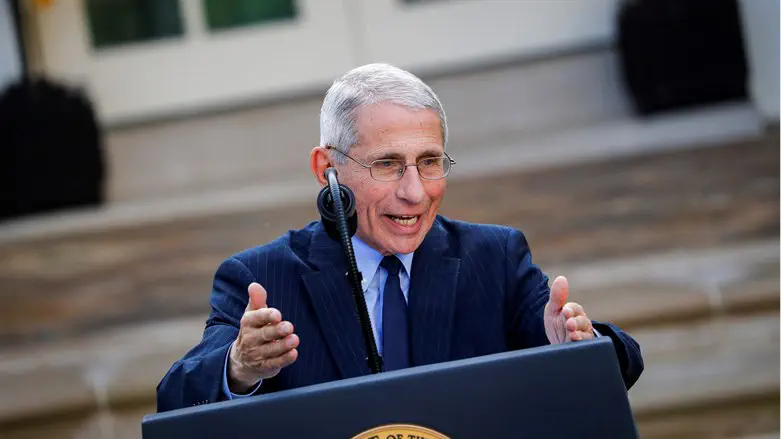
Dr. Anthony Fauci, director of the US's National Institute of Allergy and Infectious Diseases (NIAID) and the Chief Medical Advisor to the US President, praised Prof. Tomer Hertz and his team for their research efforts on SARS-CoV-2 variants in a recent letter. Prof. Hertz and his students Liel Cohen-Lavi, Sinai Sacharen, Eilay Koren and Anat Burkovitz, are a part of the SARS-CoV-2 Assessment of Viral Evolution (SAVE) program at the NIAID, a part of the US National Institutes of Health (NIH).
Prof. Hertz is also the co-correspondent of a recently published Nature article describing the coordinated efforts of that program and its importance for assessing the implications of SARS-CoV-2 variants to inform public health decisions in the US.
"My students and I have been part of the early detection group that analyzes the viral sequence data. We have been generating monthly rankings of SARS-CoV-2 variants based on predictions of their escape from antibodies for the group for the last eight months. We are also part of the T-cell working group and have done lots of analysis on T-cell mediated immune pressure on the virus for this project," explains Prof. Hertz. He is a member of the National Institute for Biotechnology in the Negev and the Shraga Segal Department of Microbiology, Immunology and Genetics in the Faculty of Health Sciences.
In the letter, Dr. Fauci expressed his appreciation for "the critical contributions you and your team have made during the ongoing COVID-19 pandemic. Your research has been incredibly important to the fast-paced pandemic response and has supported public health efforts around the world. I recognize that developing the tools and data needed to enable a rapid response to COVID-19 has required a strong work ethic and resilience, and that you have made incredible progress despite many unprecedented obstacles."
Dr. Fauci went on to thank each member of the team and concluded by saying, "You are a leading example for both the infectious disease and broader biomedical research communities, and I am grateful for your unwavering commitment to global public health."
The SAVE program is composed of an international team of scientists with expertise in virology, immunology, vaccinology, structural biology, bioinformatics, viral genetics, and evolution.
Collaborative science and open sharing of results in near real-time have defined the SAVE program. This cross-fertilization has allowed for efficient and rapid analysis of the impact of emerging variants on infection and vaccine-induced immunity. This progressive approach combined with open communication and coordination by NIAID/NIH has facilitated rapid prioritization, reagent development, testing, and assessment of SARS-CoV-2 variants.
In the Nature article, Prof. Hertz and his co-authors from around the world detailed the SAVE program's collaborative approach to identify and curate data about emerging variants, their impact on immunity, and effects on vaccine protection using rapid experimental testing and bioinformatic analysis. The comprehensive, real-time data generation facilitated rapid data-sharing with the scientific community, and allowed rapid risk assessment and generation of informed recommendations to policymakers worldwide. The SAVE methodology serves as a template for the response against rapidly evolving pathogens and may also be useful in combating future pandemics.

